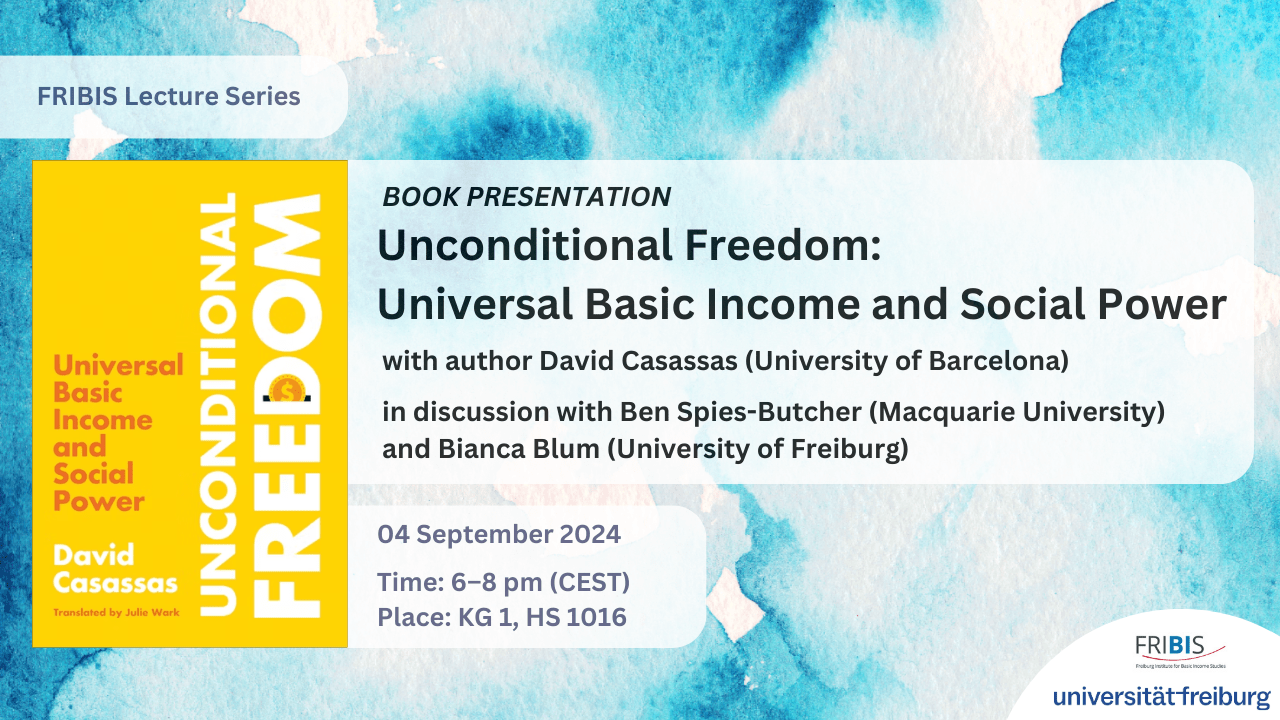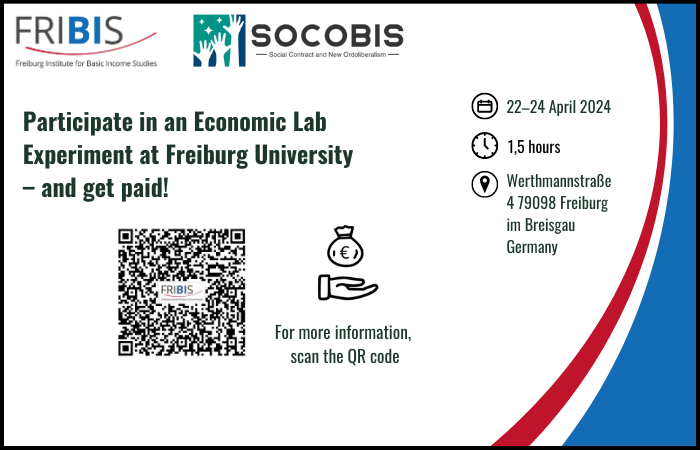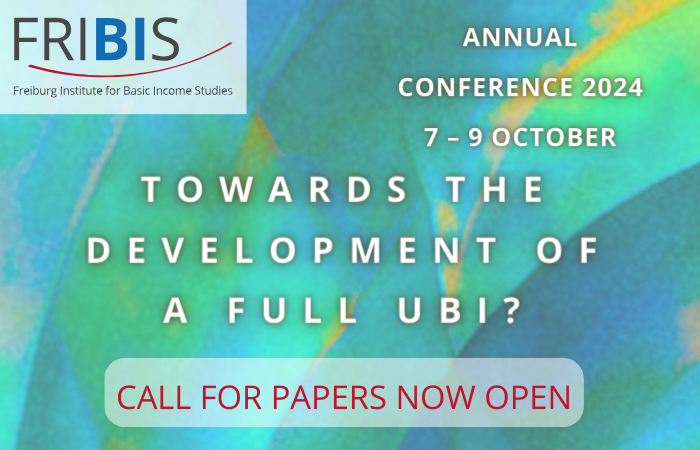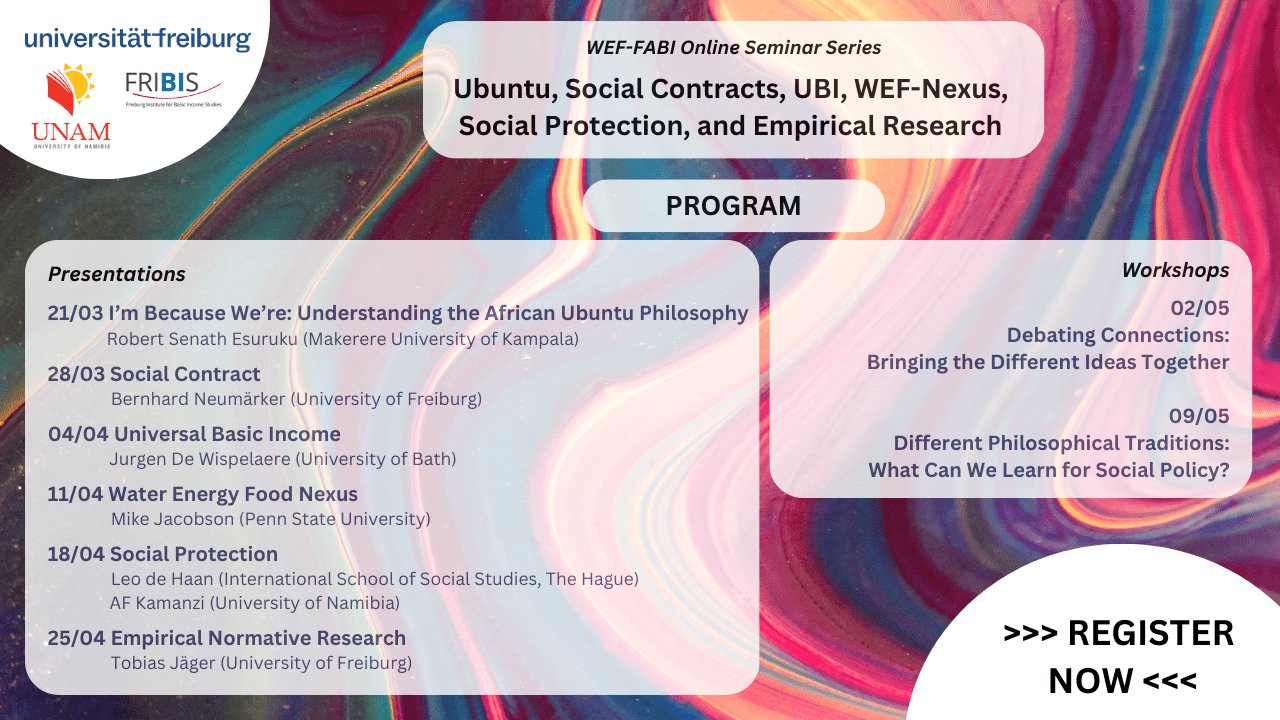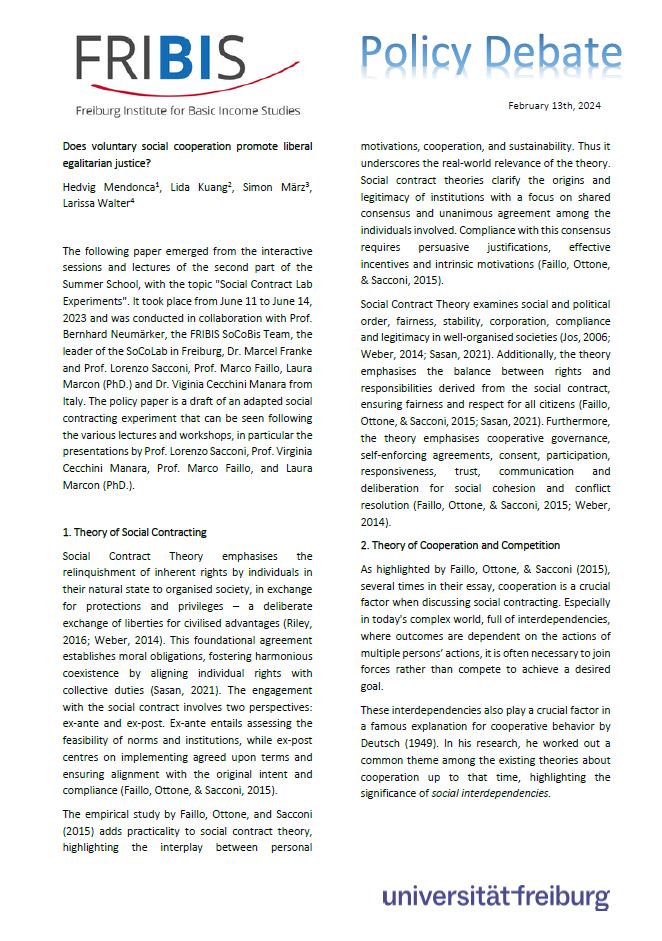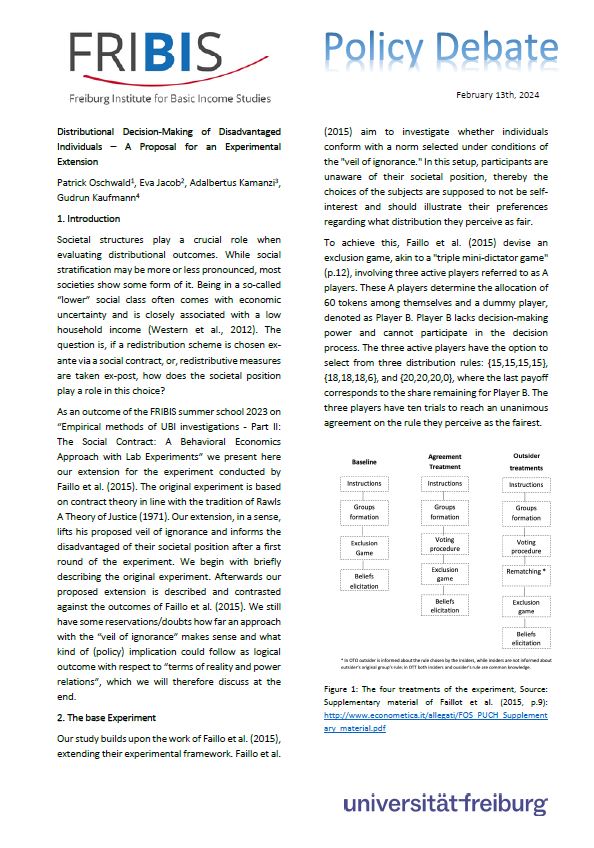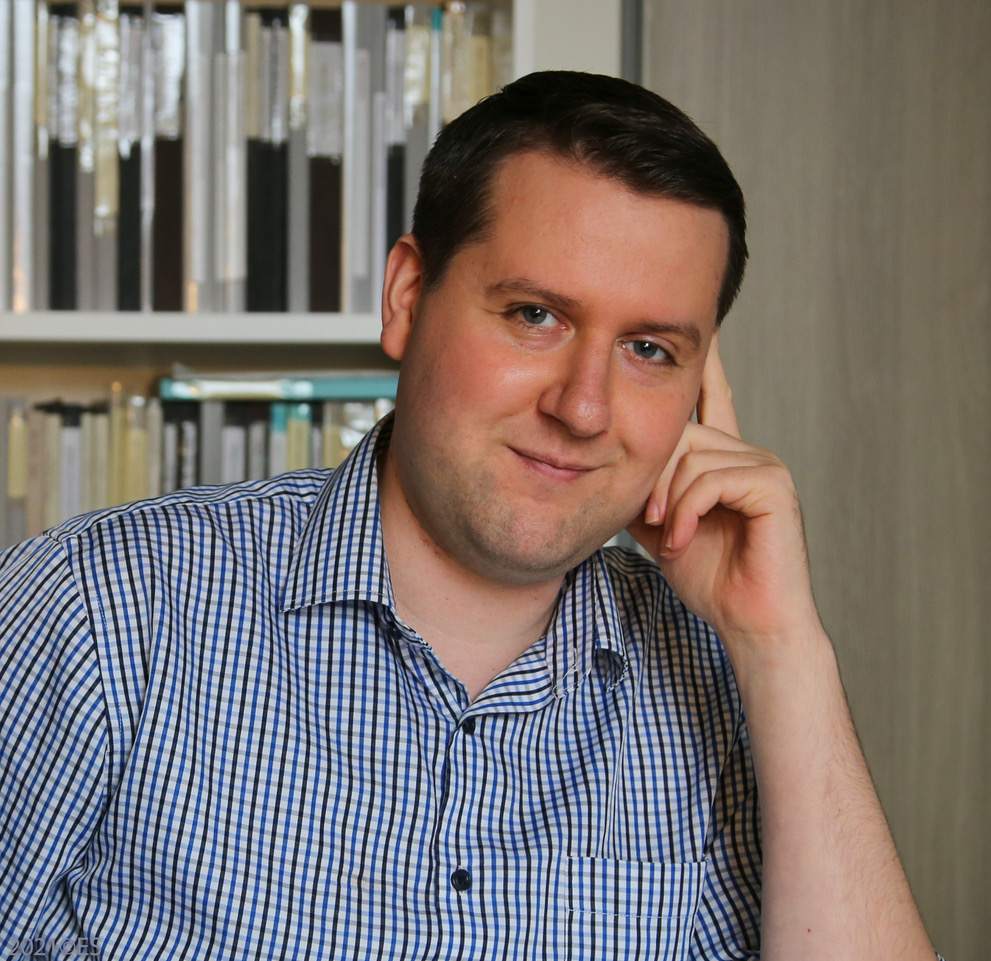Book Presentation and Expert Workshop on Universal Basic Income and Social Power at the University of Freiburg (September 4 and 5, 2024)
On September 4 and 5, 2024, FRIBIS is set to host two events on the topic of UBI and its potential to foster social power and freedom.
On September 4, 2024, the new book Unconditional Freedom: Universal Basic Income and Social Power by David Casassas will be presented at the University of Freiburg. The event, organized in collaboration with the Freiburg Institute for Basic Income Studies (FRIBIS), will feature a discussion with the author, joined by Ben Spies-Butcher (Macquarie University) and Bianca Blum (University of Freiburg).
In his book, Casassas explores how UBI can help mitigate social exclusion and precarious employment while enhancing the bargaining power of individuals and collectives. The presentation marks the beginning of a two-day focus on UBI and its potential to provide an exit option for workers.
The book presentation is free and open to the public. For more information, click here.
On the following day, September 5, 2024, FRIBIS will host an expert workshop titled “Basic Income as an Exit Device: Possibilities and Challenges” at the Liefmann-Haus. Organized by Jurgen De Wispelaere and Fabienne Hansen, the workshop will bring together proponents and critics of the exit option and its role in a basic income society. Presentations will be held by David Casassas, Ben Spies-Butcher, and various junior researchers.
The workshop aims to address recent criticism of the exit option, which argues that UBI may not offer a real or robust exit option, that exit options are not easily generalizable across the diverse population of workers, and that they may not confer real social power or equalize bargaining power between workers and employers.
Speakers and presentations:
- David Casassas (University of Barcelona): Bargaining Power: Exit Options for Entry Doors and the Emancipatory Potential of Basic Income
- Clem Davies (University of Freiburg): Universal Basic Income and Exit Options – An Experimental Approach
- Jurgen De Wispelaere (University of Bath) & Tobias Jäger (University of Freiburg): Basic Income Exit as a Social Good
- Jeeeun Jang (Tampere University): Why Context Matters: The Role of Basic Income in Exit Mechanisms
- Ben Spies-Butcher (Macquarie University): Exits Both Ways? Reflections on Basic Income, Care and Work
- Mike Howard (University of Maine) and Bernhard Neumärker (University of Freiburg): Basic Income as an Exit Device: Ordoliberalism Meets Socialism. Discussion moderated by Jurgen De Wispelaere (University of Bath)
For more information about the workshop, click here.
Please note, this is a closed event. If you are interested in participating or want further information, please contact Fabienne Hansen.
